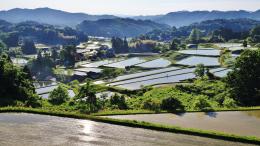This instalment of the International Water Colloquium series will be held by Dr Guillaume Baggio (UNU-INWEH) and project partners on the topic “Assessing the Enabling Environment of SDG 6 with Limited Evidence through the SDG 6 Policy Support System”.
Achieving SDG 6 is a global challenge, and many countries are still struggling to realign their policies and implementation plans while lacking reliable evidence on SDG 6. In this context, strengthening the enabling environments is critical to the achievement of SDG 6, and evidence to support countries with a systematic approach for effective planning and policy implementation must be a priority.
To address these issues, UNU-INWEH and partners developed the SDG 6 Policy Support System (SDG-PSS). This online tool was designed to generate evidence on the enabling environment of SDG 6 through a framework that shows strengths, weaknesses, and missing data across all SDG 6 targets and indicators, and consists of the following components: Capacity Assessment; Finance; Policy and Institutional Assessment; Gender Mainstreaming; Disaster Risk Reduction (DRR)/Resilience Mainstreaming; and Integrity. These components are a result of a collaborative approach between project partners and were chosen as they allow a better understanding of the enabling environment for achieving SDG 6.
The SDG-PSS is currently available in English, French, and Spanish and can be accessed here.




